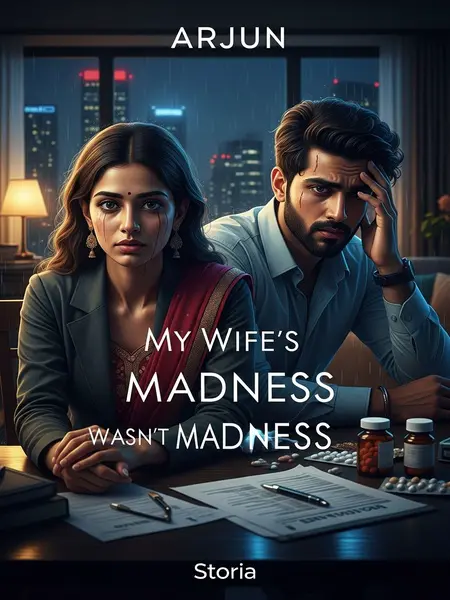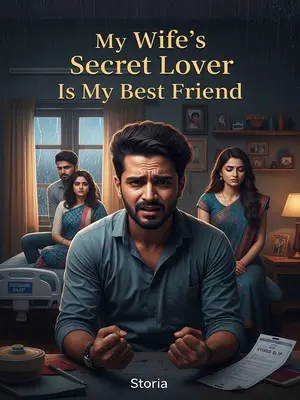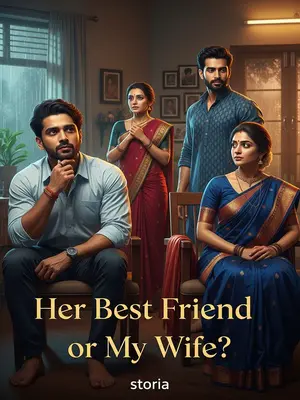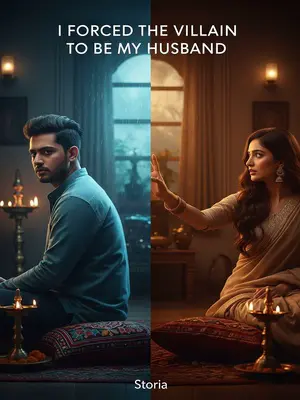Chapter 3: Unraveling the Mystery
That was another of my worries.
In the emergency, even one missed detail can become a disaster. I quickly checked her pupils, reflexes, looking for any sign of stroke.
The patient had no previous history of hypertension, but such high blood pressure was definitely abnormal.
Arjun shook his head when I asked. “No, doctor, her BP has always been normal.” That made me even more suspicious.
If the patient was very agitated, this sky-high blood pressure could be explained by tension and anxiety.
Usually, someone shouting or thrashing about might spike their BP, but Meera was now eerily calm—something didn’t add up.
But now the patient was relatively calm, so such high blood pressure was very abnormal.
I shared my concern with the resident, “Aise mein, kuch aur sochna padega.” We couldn’t just blame stress.
Moreover, the patient looked overweight, with a round face—clearly the type prone to the 'three highs' (BP, cholesterol, sugar), so I had to be extra careful.
She had that typical central obesity—like so many middle-aged patients we see. The kind that comes from years of desk jobs, midnight snacks, and little time for morning walks.
I was especially worried she might have a cerebrovascular accident like cerebral haemorrhage or stroke, so I checked her limb muscle strength and tone. There was nothing major, but her muscle strength was a bit weak—when I asked her to shake hands, her grip was poor.
I gently took her hand, “Meera ji, zara dabayiye.” Her fingers barely pressed mine. I tested her legs too—little resistance. I made a note.
Maybe she was just hungry; Arjun told me she hadn't eaten much lately.
“Pichle kuch din se kuch kha nahi rahi,” he admitted, wringing his hands. I nodded—malnutrition can do strange things.
I grunted, not giving a definite answer.
“Dekhte hain,” I said, though my mind whirled with possibilities.
Of course the family wouldn't know, but my mind was racing, considering all possibilities.
In the emergency room, you have to become a detective—no clue is too small, no possibility too far-fetched.
Many diseases can cause psychiatric symptoms. In our emergency department, the most common are uremic encephalopathy, hepatic encephalopathy, and pulmonary encephalopathy. We needed to draw blood quickly—just do liver function, kidney function, blood gas analysis, and everything would become clear.
I barked orders to the nurse—“LFT, KFT, blood gases, CBC—sab nikalo jaldi.” The blood vials clinked in the tray. The resident scribbled on the request forms.
Also, a brain CT was necessary, because her condition had worsened, her blood pressure was so high, and her limb strength was a bit poor. If the CT was normal, I would feel more at ease.
I explained to Arjun, “Dekhiye, ek baar CT kar lete hain. Dimaag mein bleeding ya kuch aur toh nahi?” He nodded, grateful for the thoroughness.
I told Arjun: although it was done before, this is a different time, so it's better to repeat it for peace of mind.
He didn’t hesitate, “Jo sahi lage, doctor saab.” His readiness to trust made my job easier.
Chalo, I like such cooperative family members—it saves time and effort, and causes no trouble.
Not every family is like this—some argue, some delay, some demand second opinions for everything. Arjun just wanted his wife better, no matter what.
Soon, the nurse measured the patient's temperature and found she had a moderate fever.
“Sir, 101.3 hai,” the nurse announced. A new piece in the puzzle—fever meant infection, maybe more.
That was odd—fever usually means infection, but where?
I thought of the usual suspects—lungs, urine, hidden abscess. In India, infection is always high on the list.
The most common is respiratory infection, so I listened to her lungs first.
I placed the stethoscope on her chest, focusing, tuning out the noise of the ward around me.
There seemed to be some moist rales in the left lung. As we discussed before, moist rales (crackles) mean there is fluid seeping into the airways, and the sound is produced when air breaks through the bubbles.
With each breath, there was a faint bubbling sound, like the fizz in a glass of Limca. Not good. I made a note.
I observed the patient's breathing—it was a bit rapid.
Her chest rose and fell quickly—about 24 times a minute. Her nostrils flared slightly. Another clue.
Has the patient been coughing or producing sputum lately? I asked Arjun.
He frowned, thinking hard, “Nahi, doctor. Bas khaana nahi khaya, aur thoda thakawat thi.” He glanced at his daughter, who shook her head.
No, he denied it, saying he had been with her all this time and hadn't seen her cough or produce sputum.
I pressed further, but there were no typical signs—no phlegm, no hacking cough. Still, infection can be sneaky, especially in people who are already weak.
Just poor appetite, not eating much.
Malnutrition can blunt the body’s ability to fight infection—or even to show classic symptoms. I made a note to check for UTI too, just in case.
Still, I couldn't rule out a lung infection or pneumonia. Pneumonia can cause fever, moist rales, rapid breathing, and even trigger or worsen psychiatric symptoms. I explained this to him.
I reassured Arjun, “Dekhiye, kabhi kabhi infection se bhi dimaag pe asar padta hai. Pneumonia se bhi aisa ho sakta hai.” He looked worried but grateful that there was at least an explanation.
Actually, I'm not very experienced with psychiatric illnesses, but by reasoning, I believe that if a patient has an acute infection like pneumonia, it can definitely aggravate existing conditions like schizophrenia.
The body and mind are tied together—my professor’s words came back to me. “Never separate the two. India mein toh, especially, everything is connected.”
Let's do both brain and chest CTs, I suggested.
Better to be thorough—scan the brain for stroke, the chest for pneumonia. Arjun nodded, “Theek hai.”
Okay. The family agreed readily.
His mother started chanting a prayer softly, “Om Namah Shivaya,” as we wheeled Meera away for the scans.
Before the CT, I had already instructed the nurse to draw blood for routine tests, then we pushed the patient to the CT room.
The orderly expertly maneuvered the stretcher around a stray IV pole. I double-checked the forms, reminded the nurse to keep a close eye on Meera.
On the way, we kept sedatives ready, in case the patient acted up or was uncooperative—just give her an injection, I told the nurse.
I whispered, “Agar kuch problem ho, ek shot lagana. Main nearby hi hoon.” We moved quickly, not wanting to risk any surprises in the corridor.
The CT went smoothly.
No resistance, no drama—Meera lay still, as if she had given up fighting. The technician gave a thumbs-up.
The images could be viewed immediately. The head was fine—no bleeding, no tumour.
My heart slowed a little. One worry crossed off the list.
But there was a problem in the lungs—some inflammation in the left lung, which could explain the fever, moist rales, and rapid breathing.
The CT report showed a patch in the left lower lobe—classic for pneumonia. I turned to Arjun, explaining carefully, “Fikr mat kijiye, this is treatable.”
The patient had pneumonia, I told the family.
Arjun let out a sigh, as if the news was almost a relief compared to everything else. “At least it’s something we can treat,” he said.
But it wasn't serious.
I reassured them, “Early stage hai, antibiotics se theek ho jayega.” Arjun nodded, holding Meera’s hand tightly.
Unexpectedly, as soon as the patient returned to the resuscitation room, she suddenly had a seizure, which startled me.
Time seemed to freeze—the only sound was the monitor’s frantic beep and Arjun’s desperate cry. She began to shake, her jaw clenched, arms stiff. The monitors beeped urgently, and for a moment, time seemed to freeze in the room.
She suddenly clenched her teeth, her hands convulsed, her face showed terror, as if she had seen something horrifying.
Her lips pulled back, eyes wide, a low moan escaped her throat. Arjun cried out, “Meera!” The nurse rushed to support her head.
In the middle of the night, if this had happened at home, it would have scared her family out of their wits.
Thank god she was in the hospital. At home, who knows what might have happened—God forbid, she could have hurt herself badly.
I quickly calmed down. Just as I was about to instruct the nurse to medicate and stop the seizure, the patient stopped on her own—it lasted less than five seconds.
Sister Fatima had the injection ready, but the fit passed almost as suddenly as it began. Meera lay still, breathing heavily.
It really came and went quickly, starting and ending abruptly.
Everyone exhaled together, the tension easing for a moment. Arjun looked at me, desperate for answers.
After this seizure, the patient was even weaker.
She slumped back, barely moving, her breath coming in gasps. The daughter, frightened, started to cry softly.
Lying on the resuscitation bed, her breathing was visibly laboured, gasping for air.
The oxygen monitor beeped—saturations holding, but I kept a close watch. The nurse adjusted the nasal cannula.
Fortunately, her vital signs were still stable, and I breathed a little easier.
My own shoulders relaxed a fraction. In emergencies, sometimes, the best thing is that nothing else goes wrong.
The neurologist came, looked at the head images, did a simple neurological exam, and thought it wasn't cerebral haemorrhage or stroke, but said it was still worth doing a brain MRI.
He was a senior, with a no-nonsense air, scanning the CT, then checking her reflexes with a practiced tap. “Nothing acute, but do an MRI—just in case,” he advised.
Because MRI and CT are different—MRI can see things CT can't, like acute cerebral infarction or small tumour lesions.
He explained to the family, “Dekhiye, MRI mein chhote chhote infarcts ya tumours dikh sakte hain jo CT mein nahi aate.”
But she had a brain MRI not long ago and nothing was found, Arjun interjected.
Arjun’s voice trembled, “Par sir, ek hafte pehle hi toh MRI hua tha—sab normal tha.” The neurologist nodded, but insisted.
The neurologist hesitated, then said: the condition can change—having no problem before doesn't mean there's none now.
He spoke gently, “Beta, aaj hai, kal nahi ho sakta hai. Lekin, samay ke saath kuch bhi badal sakta hai.”
Exactly, just as I told the family, this is a different time.
I backed him up, “Yes, every episode is different. Kabhi kabhi naya problem aa jata hai.”
For safety, it's better to do an MRI to rule out stroke or other neurological problems.
Arjun nodded, exhausted but compliant. The daughter clung to her grandmother, silent and scared.
Since there was no neurological specialty issue for now, the patient would stay in the emergency department for observation, and psychiatry would be consulted the next day.
I reassured them, “Don’t worry, hum raat bhar dekhbhaal karenge. Kal subah psychiatrist bhi dekh lenge.”











